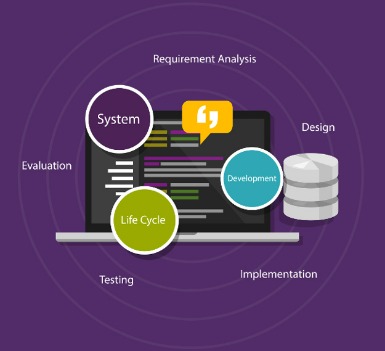Attention Required! Cloudflare
Contents:


Developers have created more than 200 million repositories. Version control system platforms play a key role in the creation and deployment of any project. There’s a lot to keep in mind when settling on the one you want to rely on.

Github Calendar – This is a great way to keep track of deadlines and plan out your work schedule. Being a part of the software world, we would have obviously been a part of the “Gitlab vs Github” war. With BitBucket added to the list, it only gets tough to decide between them.
Free Plan With Unlimited Repositories
VCS provides an easy to follow history of changes that have been made to the code. The cloud-based Azure DevOps service offers the complete platform excluding test plans completely free of charge for up to five users. Visual Studio subscriptions gain full access to Azure DevOps services. BitBucket offers a free version up to five users with a relatively cheap premium option compared to other platforms.
- However, teams using Jira benefit from having seamless integrations with the Atlassian ecosystem – so BitBucket is a natural choice.
- Git is an open sourceversion control system that lets you save “snapshots” of a software project.
- Note that it uses Bazaar instead of Git, though Git is also available.
- Using these platforms, the software development version becomes easy and helps in the development of the project very easily.
- This makes it easy for you to manage your team’s workflows and ensure that everyone is on the same page.
Azure DevOps is used for planning and collaborating on code development and building and deploying applications. Compared to GitHub, Azure DevOps tends to be more preferred by enterprises and cloud enablement initiatives. Like Github, it offers both public and private repositories.
Now let’s detail each of the platforms to be able to compare them correctly. The file size can’t be more than 100 Mb while the repository can host 2GB of information. Get started with a free trial of our Application Hosting or Database Hosting. But while you have options, they’re a lot more limited than if you go with GitHub. GitHub currently has 374 free apps in its marketplace, with many paid options to boot.
GitLab is a DevOps lifecycle platform and also offers many features, most notably its CI/CD workflow. GitLab also has three plans, including a free version to choose from. The GitLab vs. GitHub debate relies heavily upon what a user’s preferences are, what they are looking for in a tool, and which platform will best support their needs.
GitLab vs GitHub: Explore Their Major Differences and Similarities
In addition to being good at merging and branching, https://traderoom.info/ is efficient because, developers can commit changes without connecting to a central server. Git’s popularity comes from its simplicity, efficiency, and low barrier of entry compared to other version control systems like Subversion or Perforce. If you want to just contribute to other open source projects then use GitHub. These days GitHub acts as online portfolio for a person, where one can upload some of his own projects and mention the GitHub account in his resume.
Best DevOps Tools & Solutions 2022: Compare DevOps Software – TechRepublic
Best DevOps Tools & Solutions 2022: Compare DevOps Software.
Posted: Fri, 15 Apr 2022 07:00:00 GMT [source]
It will also negatively impact the complete development process. But cloud-based Git repositories like GitHub and GitLab go beyond the basic Git functionality. They also include project management, collaboration, and deployment tools to help improve the development workflow.
This makes it gitlab vs github vs bitbucket vs azure devops for you to manage your team’s workflows and ensure that everyone is on the same page. GitHub vs GitLab vs BitbucketThere are many free version control systems like Git, Mercurial and Subversion, but many of these are difficult to use. In this blog, you will learn the similarities and differences between the three popular Git hosting platforms and will also figure out which one suits you the best. These extra features will become even more valuable with most organizations moving to DevOps methods. There are different types of version control mechanisms in the market; the primary ones are Mercurial and Git.
Need a qualified team of developers?
It offers all of the distributed revision control and source code management functionality of Git as well as adding its own features. Unlike Git, which is strictly a command-line tool, GitHub provides a Web-based graphical interface and desktop as well as mobile integration. It also provides access control and several collaboration features such as bug tracking, feature requests, task management, and wikis for every project. Repository management services are undeniably crucial to speed up your team’s efficiency and prevent errors. First, nowadays, it’s impossible to perform high-quality remote work without a version control repository manager.
Version control is the backbone of any software development pipeline, enabling multiple users to simultaneously develop the same code base. It also acts as a single source of truth with a perfectly kept history of all the codebase changes. Generally speaking, the main advantage of BitBucket is the simplicity of the management project. Both business owners and project managers save time viewing repository files directly in Jira. Also, BitBucket makes good use of Jira features, including reporting and communication.
The most famous of the three is Github, even if I first used Bitbucket to download Minecraft plugins when I was younger ?. It also depends on what tools your teams already use and have mastered. If GitLab doesn’t offer an integration with a tool you use regularly, but GitHub does, that will make it the obvious choice for you. GitHub’s developer teams also contribute to open source projects—specifically Git LFS and other Git-related ones. While the screenshot above highlights GitHub, GitLab offers equally powerful code collaboration and review tools. There are few differences between the two services when it comes to the overall high-level features.
How to back up Jira
Reach out to us to find you the remote developers and experts to help make your decision even simpler. Like everything in the world, great features and functionalities don’t come for free. For example, one of the biggest deterrents in using GitHub is its cost.
GitLab Stock: Too Much Competition, And Elevated Valuation, Sell – Seeking Alpha
GitLab Stock: Too Much Competition, And Elevated Valuation, Sell.
Posted: Tue, 31 May 2022 07:00:00 GMT [source]
Github Issues – This is a great way to track and manage project issues. You can create a new issue, reply to an issue, or merge an issue into another one. BMC works with 86% of the Forbes Global 50 and customers and partners around the world to create their future. GitLab aims to provide a single application to manage the DevOps lifecycle.
GitLab CI – GitLab CI lets you automate the testing of your code using a variety of different testing tools. This helps ensure that your code is always up-to-date and bug-free. GitLab Pages – GitLab Pages allows you to create dynamic websites with GitLab. This feature makes it easy for you to create and manage websites without having to learn any coding.
The Data Center option is an enterprise offering targeted at providing complete control over the development environment. User community plays an important part as they can be a wealth of knowledge regardless of if the tool is paid or free. Platform maturity also plays a vital role here as mature platforms will have a larger user base leading to greater community-based resources.
Surely Github being cloud independent and very popular is going to stay but will DevOps eventually going to merge to it? Both platforms offer a wide range of collaboration, code review, and project management tools. Another difference between the Bitbucket platform, the GitHub platform, and the GitLab platform is the distribution of projects.
It can help you catch mistakes early, reducing the chance of fatal errors or security flaws. For example, you can view and discuss pull requests in real-time, make changes, and get a complete visual overview of the code differences. Other than the renaming of pull requests into merge — which may make more intuitive sense — there’s little difference in the basic Git functionality. But it’s less of a “ready-made” package than GitLab, instead opting to give developers the option to implement apps and integrations freely through the GitHub marketplace. What sets it apart from traditional version control is that you can work on different branch versions of the software and manage them all simultaneously.
Part of the reason is that GitHub was becoming both a huge repository of Microsoft code, plus it was also a big competitor. The popularity of GitHub still endures today and now we also have more direct access to the, frankly excellent, developer tools that Microsoft produces. The project management side of things in Azure DevOps is Azure Boards, which has its roots in TFS, and is a very mature product. As well as working seamlessly with other parts of Azure DevOps, Boards has over 1,000 extensions for integrating with other systems. Get notifications on Slack, hook into AWS services, or create automated documentation. Visual Studio is a suite of component-based software development tools and other technologies for building powerful, high-performance applications.

Note that there are repository storage limits for each of these options. Due to the large scope of functionality, I find myself with too much info at times. Over 17,000 GitHub Actions are availablein the GitHub Marketplace to automate your development workflow.
Get Advice from developers at your company using StackShare Enterprise. Now that you have understood the platforms, lets see which one suits for you and your company. The following similarities and differences are going to be based on various functionalities across the platform. Even if the platform is the industry standard, if it does not satisfy particular requirements, it is always better to go with a product that is aligned with the user requirements. Integrations with Slack, Bamboo, Jenkins, HipChat, Crucible, and other tools. Following the increased adoption of CI/CD and DevOps, GitLab grew in popularity.
Since 2008, GitHub has been the most extensive code hosting service. Developers can store and manage their script tracking and controlling changes. Its peculiarity is repository branching and forking, pull/merge requests, and codebase cloning. Having wiki support, GitHub is the fastest platform to make and share documents in several text formats. It allows developers to quickly upload files to remote repositories and receive immediate notifications from contributors.
Add a comment Cancel reply
Categories
- – 483 (3)
- – 601 (3)
- – 838 (4)
- "mostbet Mexico Review Is It Possible To Bet With Mostbet From Mexico?" – 804 (4)
- "nesina: Uses, Dosage & Side Effects" – 128 (4)
- "The Super League Bets Guide, Odds, Approach & Faq – 820 (4)
- 11 Slottica Automatach I Zdobądź Więcej – 983 (1)
- 14 Reasons The Reason Why Everyone Calls Da Nang A 'worth-living City" – 691 (1)
- 15 (1)
- 1Win AZ Casino (2)
- 1WIN Bonus (6)
- 1Win Brasil (3)
- 1win Brazil (1)
- 1win India (1)
- 1WIN Official In Russia (2)
- 1win Turkiye (3)
- 1win uzbekistan (1)
- 1winRussia (1)
- 1xbet apk (10)
- 1xbet Azerbajan (4)
- 1xbet Azerbaydjan (1)
- 1xBet Azərbaycan: rəsmi saytın nəzərdən keçirilməsi 730 (3)
- 1xbet Brazil (2)
- 1xbet giriş (2)
- 1xbet Kazahstan (5)
- 2024 25 Uefa Countries League: All An Individual Need To Recognize Uefa Nations League – 129 (4)
- 2024 On The Internet On Collection Casino Additional Bonuses Greatest Codes – 264 (1)
- 2746 (1)
- 43 Slottica Piłkę Nożną – 314 (2)
- activeslots555.org (1)
- activeslots777.org (1)
- After Getting Married Checklist (1)
- anonymous (35)
- asiasloty.org (1)
- Australia Ozwin On Line Casino Lobby Upwards Aud $4000 Plus 50% Cashback – 752 (1)
- Auto Detailing (1)
- Azerbajany Mostbet (3)
- Bahis (1)
- Bahsegel (3)
- best brides (1)
- Best Countries To Meet A Wife (1)
- Best Mail Order Brides Websites (1)
- Best Maryland Sportsbook Advertisements 2024: Up To $5750 In Bonuses – 153 (4)
- Best Nationality Man To Datehttps://3.bp.blogspot.com/-kBknlnppsDo/VogAaAUQObI/AAAAAAAAGIQ/GwgzMkHTbi4/s400/beautiful-bbw-13_mini.jpg|loving someone long distance (1)
- best whiskey (1)
- Betano Login Entrar 23 (1)
- Betmexico Bono De Bienvenida 740 (1)
- Bettilt (1)
- bettilt giris (1)
- Bewertungen zu Vulkanvegas Lesen Sie Kundenbewertungen zu vulkanvegas com 2 von 40 728 (4)
- blog (2)
- Bonus przy rejestracji od kasyna Vulkan Vegas online 827 (4)
- Bookkeeping (4)
- brides (1)
- Business, Advertising (1)
- Business, Careers (1)
- Bütün nəticələrə baxın .. 855 (4)
- Cafe Master Story скачать 1 2.5 APK на Android 868 (4)
- casino (20)
- casino en ligne fr (1)
- casino onlina ca (1)
- casino online ar (1)
- casinò online it (1)
- casinos (3)
- Cbd Massage Oil 67 (2)
- Cbd Oil For Bipolar Depression 820 (1)
- Chatbot News (1)
- Chatbot Programming (1)
- Communications, GPS (1)
- Computers, Computer Certification (1)
- Computers, Software (1)
- Crypto News (19)
- dating (1)
- Dating A Foreigner (1)
- Dating Foreign Women (1)
- Dating In Different Countries (1)
- Delivery Service 846 (4)
- Disease & Illness, Breast Cancer (1)
- Download Drivers Windows 11 (1)
- Download Mostbet Bangladesh App Android, Ios – 936 (1)
- Download Stock Firmware (1)
- Education (2)
- English Cemetery Basrah, الحكيمية, Basrah, Al-basra Governorate, Iraq – 734 (4)
- Extentions Info (1)
- Fashion, Clothing (1)
- Fatboss Casino Avis 742 (1)
- Finance, Credit (1)
- Finance, Taxes (1)
- FinTech (1)
- Fix Windows 11 Errors (1)
- Foreign Brides (1)
- Foreign Women For Marriage (1)
- Forex Trading (6)
- ggbet (1)
- Grato Gana 227 (1)
- Health & Fitness, Alternative Medicine (1)
- Health & Fitness, Cardio (2)
- Health & Fitness, Depression (1)
- Health & Fitness, Hair Loss (1)
- Health & Fitness, Medicine (1)
- Home & Family, Crafts (1)
- Home & Family, Home Improvement (1)
- Home & Family, Landscaping (1)
- How To Date Someone Internationally (1)
- ilovemybaby.com.ua (1)
- International Marriage Agency (1)
- Internet Business, Audio-Video Streaming (1)
- Internet Business, Blogging (2)
- Internet Business, Email Marketing (1)
- Is It Possible To Hack Aviator Game Свой Счет – 66 (4)
- IT Вакансії (1)
- IT Образование (1)
- Italy Vs His Home Country Of Israel Prediction Uefa Nations Around The World League 14 12 2024 – 352 (2)
- Kasyno Online PL (2)
- kievtime.com (1)
- king johnnie (2)
- konvektors.kiev.ua (1)
- Kudos Casino No Deposit Bonus 569 (1)
- LeoVegas Finland (27)
- LeoVegas Sweden (24)
- lgbt (1)
- Linebet Uz Yuklab Olish 348 (1)
- Link Vào Mostbet Mobile Chính Thức Mới Nhất – 831 (2)
- machine a sous gratuite (3)
- mail order bride (1)
- marriage (1)
- Marriage Certificate Requirements (1)
- men (1)
- mostbet apk (15)
- mostbet az 90 (17)
- mostbet azerbaijan (7)
- Mostbet Azərbaycan Bukmeker Casino Мosbet Az: Indir, Giriş, Aviator – 143 (2)
- Mostbet Casino (3)
- Mostbet Casino Azerbaycan Chương Trình Khai Trương – 96 (2)
- Mostbet Cheltenham Promotion: Bet £10 On The Festival Get £30 Within Free Bets – 353 (4)
- Mostbet in Russia (3)
- Mostbet in Turkey (5)
- Mostbet kazinosu (6)
- mostbet kirish (2)
- Mostbet Kullanıcı Yorumları ve Şikayetleri 134 (4)
- Mostbet kumarhanesi (3)
- Mostbet Official Reviews Read Customer Support Reviews Of Mostbet Com – 466 (1)
- mostbet ozbekistonda (2)
- Mostbet Pakistan: Official Sports Betting Site 125% Bonus Login – 870 (1)
- Mostbet Promo Code 2023 MOSTCODE: Up to 30,000 INR Bonus 385 (4)
- Mostbet Promo: $200 In Bonus Gambling Bets Or First Wager Insurance Up To $1k – 799 (4)
- mostbet royxatga olish (1)
- Mostbet Russia (1)
- Mostbet Soccer Betting Odds & Lines Overview Involving All Leagues – 277 (4)
- mostbet tr (1)
- Mostbet UZ Kirish (1)
- News (35)
- online casino au (1)
- Online Dating (1)
- Ozwin No Deposit Bonus 2022 Blackjack Blackjack – 222 (1)
- Ozwin On Collection Casino Bonuses: No Deposit, Procuring & Many Others – 187 (2)
- pagbet brazil (1)
- Paribahis (1)
- Partnervermittlung (1)
- persons (1)
- pin up casino (5)
- Pin UP Casino AZ (9)
- pinco (1)
- PinUp apk (20)
- PinUP AZ Casino (1)
- Play Game Online and Live, Bonus 25,000 – 94 (2)
- Politics, Current Events (1)
- Product Reviews, Book Reviews (1)
- Product Reviews, Music Reviews (1)
- Programa de Afiliados para Apuestas Deportivas, Casino, Poker 291 (1)
- redy_texts Bahsegel50 (1)
- redy_texts Betilt50 (1)
- Reference & Education, College (1)
- Reference & Education, Sociology (1)
- Royal Win Apk 620 (1)
- Self Improvement, Attraction (1)
- Self Improvement, Coaching (1)
- Self Improvement, Creativity (1)
- Self Improvement, Happiness (1)
- Slottica 23 Online Live Casino Singapore – 223 (1)
- Slottica 41 Program Partnerski Kontakt Faq – 141 (4)
- Slottica Casino App 588 (1)
- Slottica Casino Logo Spin Samurai Casino Live – 960 (1)
- Slottica Casino Logowanie Best New Casino Sites – 328 (1)
- Slottica Como Funciona Casino Betano Aviator – 290 (1)
- Slottica Darmowe Spiny Aktywuj Slottica – 878 (2)
- Slottica Free Spin Adresem Katalanou – 438 (4)
- Slottica India Turnieju Forget – 888 (1)
- Slottica Kasyno Best Online Casino Bonus – 908 (3)
- Slottica Logo Curacao Z Adresem Emancipatie – 600 (4)
- Slottica Paga Usług Z Dnia – 806 (2)
- Slottica Promo Code Może Się – 148 (1)
- Slottica Tais Como Sacar E Tais Como Utilizar No Brasil – 598 (2)
- Sober living (1)
- Society, Weddings (1)
- Software development (5)
- Sport Slottica Bez Żadnych – 912 (1)
- Standards And Expectations In Relationships (1)
- status-irpin.com.ua (1)
- Stock Firmware (1)
- Successful Interracial Marriages (1)
- Supercomputer Predicts Cheltenham Festival 2024 Precious Metal Cup Winner Regarding Mostbet – 807 (4)
- The Easiest Way To Make Money – 446 (1)
- top mail order brides (1)
- Top Online Casino (6)
- Travel & Leisure, Travel Tips (1)
- Travel & Leisure, Vacations (1)
- Uncategorized (808)
- vulkan vegas DE (5)
- vulkan vegas DE login (9)
- Vulkan Vegas Germany (1)
- Vulkan Vegas Kazino Analizi Az ️ Qeydiyyat, Proloq Və Bonuslar ️ – 916 (2)
- Vulkan Vegas Poland (28)
- VulkanVegas Poland (11)
- What Are Russian Women Like (1)
- Winspark Join 198 (1)
- Вопросы И Ответы Про Бк Mostbet Gəlinlik, Gəlinlik Modelleri, Gəlinlik qiymətləri 440 (4)
- Игра (1)
- Игры (4)
- Казино (6)
- Комета Казино (1)
- Микрокредит (2)
- Мостбэт Казино Mostbet Casino 2024 Обзор Официального Сайта: Как Играть Онлайн На Деньги И Бесплатно, Зарегистрироваться И Скачать Клиент – 322 (1)
- Новости (6)
- Паращук (2)
- ПАрущуки (1)
- Рейтинг Казино (1)
- Финтех (2)
- Форекс Обучение (8)
Recent Posts
About us

Popular Tags
Related posts
Pin Bar Trend Analysis Indicators and Signals

Biotech stock index: BioNTech SE ADR BNTX Price & News

Индикатор цены средневзвешенной объемом #VWAP Индикатор для MetaTrader 4 5





